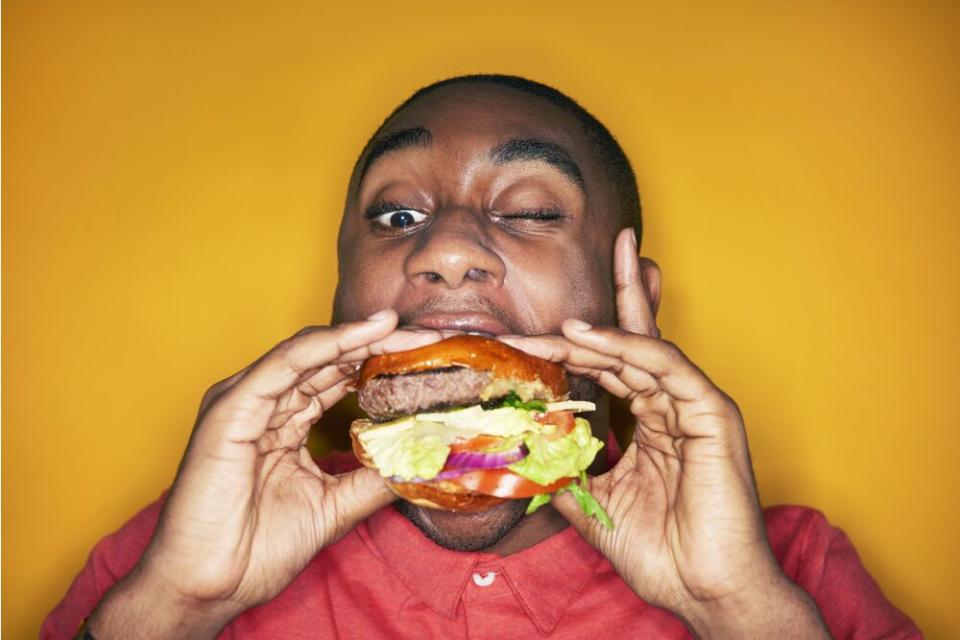How to Eat Less
If you've ever started a diet and felt like it would take monumental self control to literally eat less, stop stressing: We have you covered. Here are research-backed tips from some experts on how to set yourself up for success when it comes to eating fewer calories and slimming down.

1. Listen to yourself chew.
According to research, when people pay attention to their chewing noises naturally, they eat less, says Dawn Jackson Blatner, RDN, author of The Superfood Swap. Study participants who ate a snack while wearing headphones that played noise at varying volumes ate slightly more.

2. Stay hydrated.
Your body is usually good at communicating between your brain and your gut. That said, it is hard for the human brain to distinguish between hunger and thirst, so we often reach for food when we're actually simply thirsty. "Aim for at least 80 ounces of water a day (not including what you have at the gym) to ensure your hunger cues are received loud and clear," says Katie Andrews, MS, RD, of wellnessbykatie.com.
3. Eat the same size breakfast every morning.
Then, based on what and how you eat the rest of the day, adjust your dinner accordingly. "That's how I structure my dinner based on how many recipe development tastings I've done in a day," says Breana Killeen, MPH, RD, Test Kitchen Director for EatingWell magazine, who also has multiple recipe development tastings a day.

4. Take smaller bites.
When you put less on your fork or spoon, you (surprisingly) naturally chew each bite more—and that can help you eat less and enjoy what you're eating more, explains Blatner.
5. Eat plant-based protein at least once a day.
Nuts, seeds, beans, hummus, and edamame are all quality protein sources while also adding fiber. "Both protein and fiber help keep you feeling fuller longer," says Andrews. "And remember—fiber is lacking in most sources of animal protein."
If you'd like to receive weekly customizable vegetarian meal plans, then sign up for the Cooking Light Diet today!
6. Keep meals simple.
Add too many flavors, textures, or components to a meal and that might lead you to eat more unknowingly. "Research suggests that too many flavors at a meal may make you eat more," says Blatner.

7. Add mindfulness to snack time.
"Many times snacks are a substitute for something other than hunger: boredom, fatigue, anxiety, thirst, happiness, or sadness are all examples of reasons we head for the snack cabinet that aren't associated with hunger," says Andrews. "If you find yourself snacking more often, start with a 20-minute 'holding period' while you assess your hunger cues." Ask yourself: Am I eating this because I'm hungry, or because I'm [fill in the blank]?
